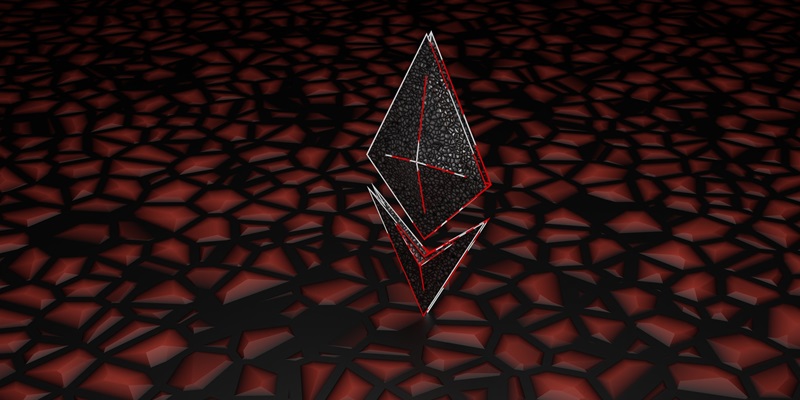In the rapidly evolving world of blockchain technology, intense competition and comparisons between different protocols are inevitable. Solana Labs, a prominent player in the blockchain space, has gained attention for its impressive performance and potential to challenge Ethereum’s dominance. However, one of Solana Labs’ co-founders, Anatoly Yakovenko, has recently expressed his disagreement with the phrase labeling Solana as an “Ethereum killer.” In a thought-provoking stance, Yakovenko argues against the zero-sum game mentality and advocates for a future of shared growth and technological coexistence.
Solana’s success is not reliant on Ethereum’s demise
Yakovenko firmly believes that Solana’s success does not necessitate Ethereum’s demise. He perceives each blockchain protocol as having its unique value proposition and purpose, with ample room for multiple platforms to flourish simultaneously. In his view, Solana can thrive independently alongside Ethereum, rather than displacing it completely. Yakovenko’s perspective challenges the prevailing narrative of one platform superseding the other, emphasizing that blockchain technology is not a winner-takes-all game.
The term “Ethereum killer” is “lame”
Yakovenko labels the term “Ethereum killer” as “lame,” indicating his discontent with the oversimplified and confrontational characterization. He asserts that such terminology detracts from the complex and interconnected nature of the blockchain ecosystem. Rather than focusing on competition and destruction, Yakovenko encourages a more nuanced understanding of the dynamics between different protocols and the potential for collaboration and coevolution.
Comparing Ethereum competition to a “Cold War”
Expressing his concern, Yakovenko draws a parallel between the competition among blockchain protocols, particularly Ethereum, and a “cold war.” He highlights the escalating tension and the potential negative consequences it can have on the overall progress of the industry. Yakovenko argues for a more cooperative approach, where blockchain projects work together to advance the technology and solve common challenges, rather than engaging in destructive rivalries.
The Interconnectedness of Solana and Ethereum
Yakovenko highlights the interconnectedness of Solana and Ethereum, pointing out that both networks can benefit from collaboration. He recognizes that Ethereum’s widespread adoption and solid infrastructure create a strong foundation for the blockchain ecosystem as a whole. Instead of viewing Ethereum as a direct competitor, Yakovenko sees it as a potential partner in the journey towards shared growth and advancement.
Rejecting the zero-sum game mentality
Yakovenko strongly rejects the notion of success and failure as mutually exclusive outcomes in the blockchain industry. He advocates for a mindset rooted in Pareto efficiency, where the success of one blockchain protocol does not have to come at the expense of another’s failure. Yakovenko’s belief in the coexistence of different protocols is fueled by the understanding that diverse solutions are necessary to address the varied needs of users and solve the complexities of decentralized systems.
Enthusiasm for blockchain advancements
In light of his vision for collaboration, Yakovenko expresses his enthusiasm for advancements in blockchain technology. He specifically highlights the potential of danksharding, an Ethereum scaling solution. Yakovenko recognizes the importance of scaling solutions like danksharding in addressing Ethereum’s scalability issues and enabling the network to accommodate a larger volume of transactions. This example underscores his belief in the ongoing progress of Ethereum and other blockchain protocols as they continuously improve and overcome existing limitations.
Technological coexistence
Yakovenko ardently believes in the power of technological advancements to enable coexistence and collaboration among different blockchain protocols. He envisions a future where Solana’s advancements, coupled with developments in Ethereum and other networks, would allow for seamless sharing and accommodation of data. This synthesis of innovative solutions would strengthen the entire blockchain ecosystem, benefiting users and driving forward the adoption of decentralized technologies.
Outperforming Ethereum’s mainnet in speed and power efficiency
One cannot deny the impressive performance of the Solana network. Compared to Ethereum’s mainnet, Solana has demonstrated superior speed and power efficiency. At its peak, Solana was capable of processing an astonishing 50,000 to 65,000 transactions per second, compared to Ethereum’s limited throughput of 30 transactions per second. This exceptional performance has positioned Solana as a compelling alternative for projects requiring fast and efficient transaction processing, leading to increased recognition and adoption within the blockchain community.
Comparative transaction processing capabilities
Solana’s significant transaction processing capabilities illustrate its potential to meet the growing demands of decentralized applications and the broader blockchain ecosystem. While Ethereum has long been recognized as an industry leader, its limited throughput has fueled the search for alternative platforms that can handle higher transaction volumes without compromising speed or power efficiency. Solana’s superiority in this regard has propelled it to the forefront, garnering attention and attracting projects seeking to leverage its impressive capabilities.
As the blockchain industry continues to evolve, embracing collaboration and co-evolution becomes increasingly crucial to drive innovation and unlock the full potential of decentralized technologies. Yakovenko’s perspective as a co-founder of Solana Labs challenges the prevailing narrative of one protocol supplanting another. His vision of shared growth, technological coexistence, and mutual support between Solana and Ethereum serves as a powerful reminder of the broader possibilities that can be realized through collective efforts and cooperation in the blockchain ecosystem. By rejecting the notion of a zero-sum game, we can forge a future where diverse blockchain protocols thrive together, pushing the boundaries of what is possible in this transformative industry.

